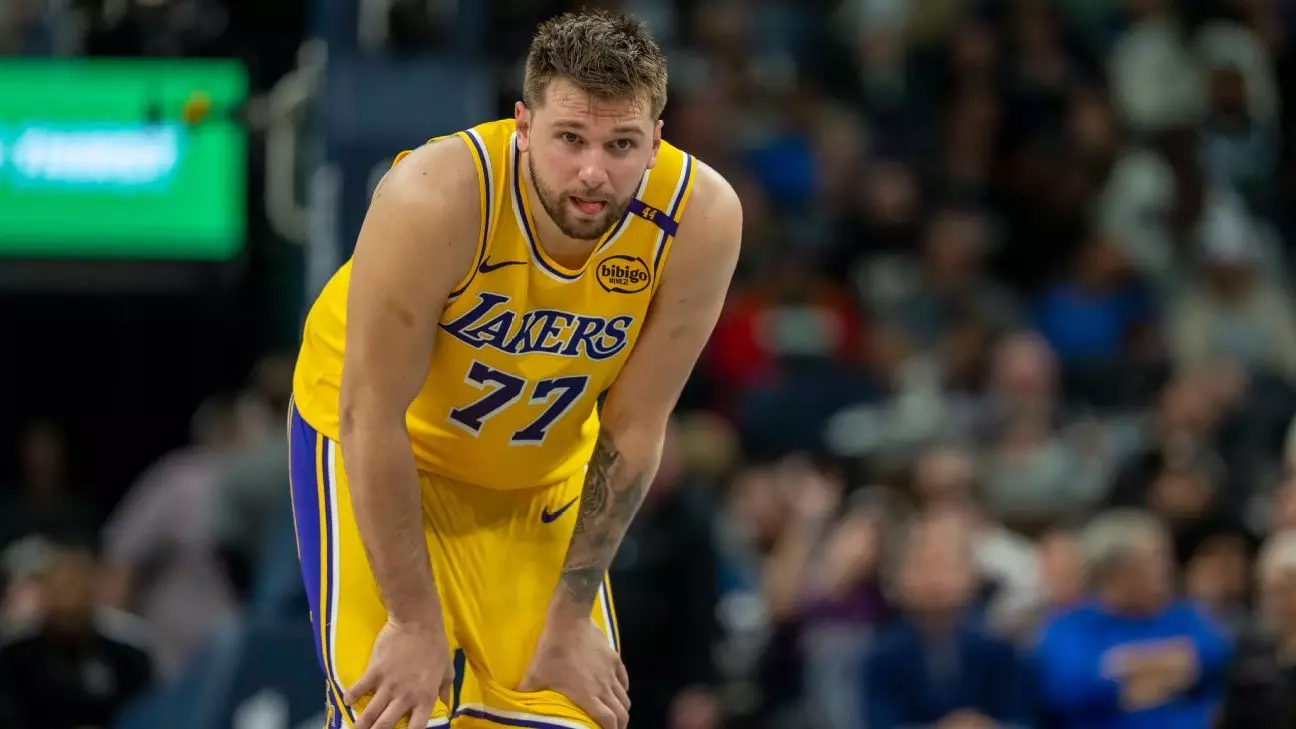In the realm of professional sports, the physical prowess and skill of athletes are often celebrated, while the unseen struggles that accompany their journey frequently go unnoticed. This was glaringly evident during the recent Game 3 clash between the Los Angeles Lakers and the Minnesota Timberwolves, where Luka Doncic, a powerhouse player for the Lakers, battled a debilitating stomach ailment that significantly hindered his performance. Leading up to the match, Doncic was reportedly “vomiting all afternoon,” a testament to how illness can abruptly shadow the brilliance of even the most elite athletes. This incident challenges us to reevaluate our expectations of sports stars, reminding us that they, too, are human.
Luka Doncic: A Case Study in Determination
Doncic’s influence on the Lakers cannot be overstated. With an average of 34 points, 10 rebounds, and five assists during the first two games of the series, he was pivotal for the team. Yet, in Game 3, he was a shell of his usual self, recording only 17 points on a mere 37.5% shooting. The disappointment was palpable, not merely for Doncic, but for the entire team which depends heavily on his contributions. LeBron James, the team’s veteran leader, articulated this sentiment perfectly, recognizing the substantial impact Doncic’s condition had on their strategy and morale. His tribute to Doncic highlights a deeper issue: the emotional and psychological toll illness can impose during high-stakes moments.
The Underbelly of High-Pressure Situations
The critical nature of the situation was palpable; Doncic’s struggle mirrored the larger narrative of pressure in professional sports. As Lakers coach JJ Redick noted, the illness disrupted Doncic’s sleep and overall performance, leading to an underwhelming first quarter where he only managed two points. This speaks volumes about how external factors—such as health—can dictate the outcome of a game, making it necessary for teams to adapt quickly in spite of such challenges. In high-pressure games, every athlete is expected to deliver their best, but Doncic’s physical state proved that sometimes, the human body does not cooperate with the demands of the moment.
The Collective Responsibility of the Team
The outcome of the match went beyond Doncic’s performance; it highlighted the collective responsibility of the Lakers as a team. Despite Doncic’s limitations, the Lakers still had an opportunity to win, trailing slightly in a nail-biting finish that came down to a 13-1 run by the Timberwolves. The Lakers committed a staggering 19 turnovers, directly handing Minnesota 28 points. This statistic is vital in analyzing the game, as it reflects how failure to execute basic plays can compound issues rather than alleviate them. Underestimating the importance of ball security could be the ultimate downfall for any team focused on victory, especially in the playoffs where every possession counts.
Looking Ahead: The Power of Resilience
As the Lakers prepare for the quick turnaround leading into Game 4, the atmosphere of urgency grows thicker. Doncic’s well-being may play a crucial role in whether the team can regain their momentum or whether they will continue to falter. The resilience shown by Doncic in persisting through his discomfort is commendable and reflects a warrior-like spirit. Austin Reaves’ acknowledgement that Doncic gave it his all stands as a testament to the character within the team despite facing adversity. The battle for health will ultimately shape the Lakers’ strategy moving forward, which necessitates adaptability and cohesion among all players.
In the grand theatre of sports, the trials and tribulations faced by athletes both on and off the playing field must lead us to appreciate their dedication and the personal struggles that inform their performance. Each game tells a story, one that extends beyond statistics and scores to encapsulate resilience, determination, and the relentless pursuit of excellence even when the odds seem insurmountable.


Leave a Reply